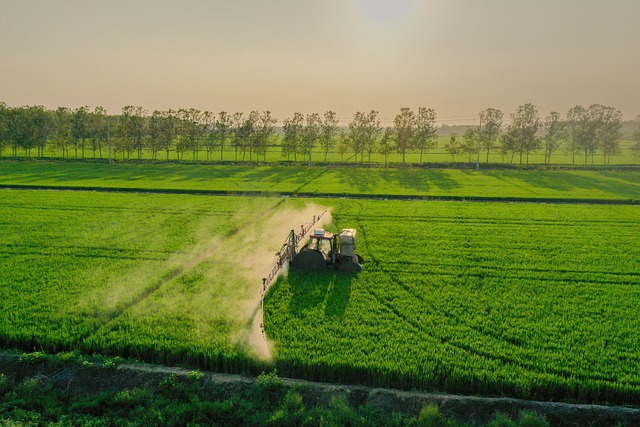Key Takeaways
- Modern agricultural practices offer sustainable solutions to age-old farming challenges.
- Technological innovations are pivotal in revolutionizing the farming sector.
- Efficient resource management plays a significant role in boosting productivity.
- Integration of data-driven techniques enhances decision-making in agriculture.
Adopting Technological Innovations in Agriculture
In the dynamic environment of modern agriculture, the integration of cutting-edge technologies has become a cornerstone for sustainable growth. This not only helps retain soil structure but also promotes biodiversity and reduces the risks of erosion, effectively enhancing the land’s fertility over time.
The implications of technology in agriculture extend beyond productivity boosts; they encompass cost reductions and enhanced operational efficiency. With GPS systems, farmers can execute precision farming techniques, ensuring each inch of farmland is utilized optimally, thereby minimizing wastage. This precision extends to planting and harvesting, allowing large-scale operations to be managed with fewer resources, ultimately contributing to a more sustainable farming model.
Improving Resource Management for Sustainability
In a world where natural resources are becoming increasingly scarce, sustainable resource management in agriculture is paramount. Tools like the no till drill are revolutionizing the way we approach farming by minimizing soil disturbance. Innovative irrigation systems, for instance, play a critical role in ensuring water is delivered to crops in the right quantities at the correct times. This avoids water wastage and ensures that every drop effectively supports plant growth.
Moreover, incorporating soil health monitoring systems allows farmers to make data-informed decisions. Sensors collecting real-time data on soil conditions enable the optimized application of fertilizers, thus reducing chemical runoff and promoting organic inputs. These strategies ensure that the environmental footprint of farming activities is kept to a minimum, fostering an ecological balance.
Enhancing Farm Productivity with Data-Driven Techniques
Enhancing farm productivity has never been more attainable, thanks to the breakthrough of data-driven agricultural techniques. Through technologies like drones and satellite imaging, farmers can monitor their crops at a level of detail previously unimaginable. This remote sensing technology allows for the early detection of stress factors affecting crops, enabling prompt corrective actions. Utilizing data-driven approaches in this manner helps maximize crop output while conserving essential natural resources.
Integrating Internet of Things (IoT) devices further elevates farm management by facilitating real-time data collection and analysis. IoT networks can relay information on crucial parameters such as soil moisture, temperature, and crop growth. These insights empower farmers to make precise adjustments to irrigation, fertilization, and other aspects of crop management, leading to increased yields and improved resource efficiency.
Collaborative Efforts for Knowledge Sharing
Collaboration and knowledge sharing are indispensable in a rapidly evolving agricultural landscape. Farmers and agribusiness professionals who engage in cooperative networks benefit from a platform to exchange best practices and technological advancements. These collaborative efforts mitigate the isolation of working in rural areas, providing access to a broader pool of knowledge.
Participating in local networks and global agricultural forums allows agriculturalists to learn from diverse experiences and adapt strategies tested elsewhere. This collective wisdom is precious in transcending the challenges of climate variability and market dynamics, thus ensuring resilient agricultural practices.
Challenges and Opportunities in Modern Farming
Modern farming presents a unique set of challenges and opportunities. Among the hurdles are the high costs associated with advanced technology adoption, a barrier that can be daunting for small to medium-sized farms. To address this, financial assistance and supportive government policies are essential. These measures can make innovative farming technologies more accessible, helping smaller operations benefit from technological advancements.
There is a significant shift towards sustainable and ethical farming practices on the opportunity front, opening new market opportunities. Consumers are increasingly sourcing their food from environmentally conscious producers, encouraging the adoption of practices that prioritize ecological health and productivity.
The Future of Agriculture
The future of agriculture is inextricably linked to its ability to adapt to emerging technologies and sustainable practices. As food security and environmental care concerns deepen, the agricultural sector must innovate to thrive. Advanced analytics, including predictive modeling, offer transformative benefits for precision agriculture.
By focusing on technologies that enhance the precision and sustainability of farming practices, agriculture can significantly contribute to meeting global food needs. This approach increases output and minimizes the impact on the environment, paving the way for a sustainable future.
Conclusion: Embracing the New Era of Agriculture
The evolution of agricultural practices is imperative to address the growing demands for food while ensuring ecological preservation. By integrating modern technologies, stakeholders in the farming sector can work towards achieving sustainability and efficiency. This new era of agriculture emphasizes innovation, continuous learning, and collaboration.
With these strategies, the future of agriculture will be better equipped to support a growing global population, assure food security, and maintain environmental health.




